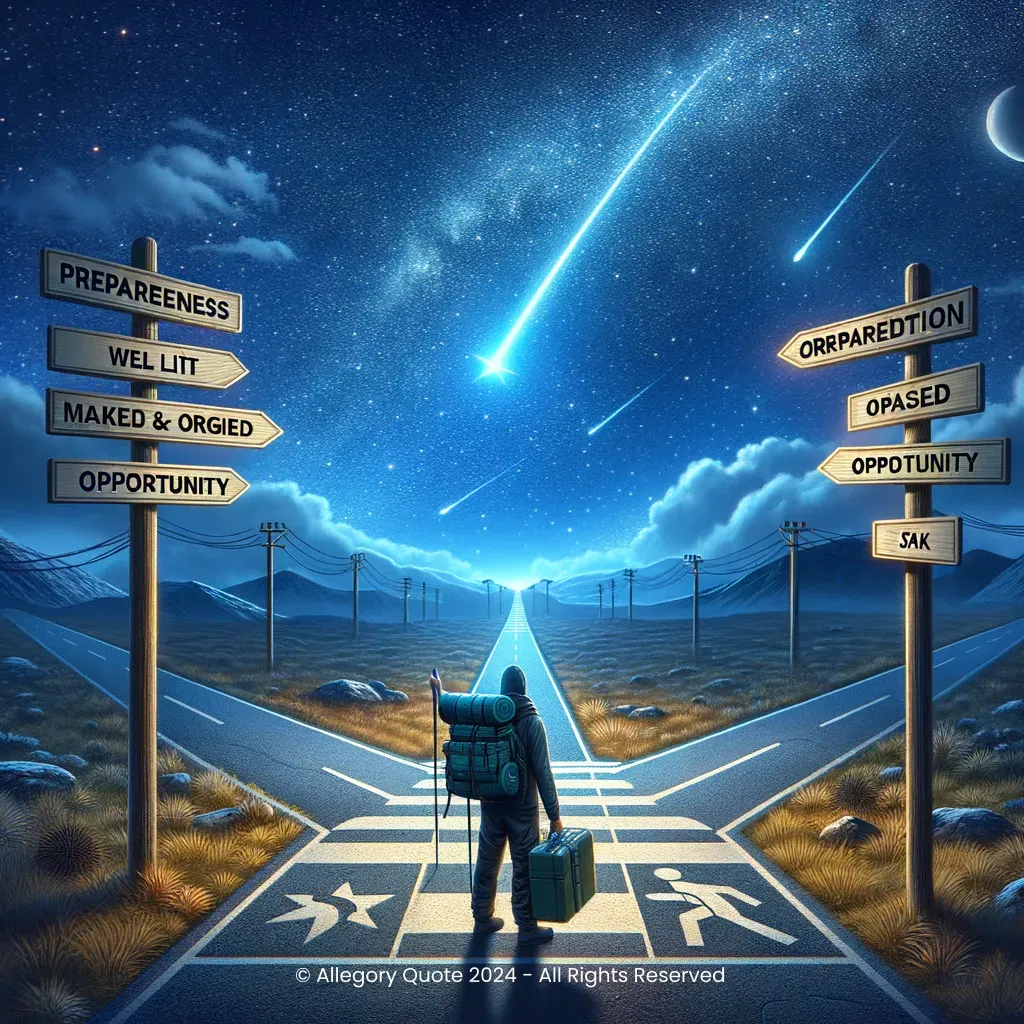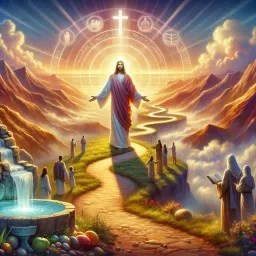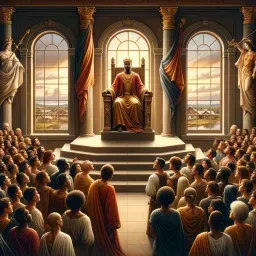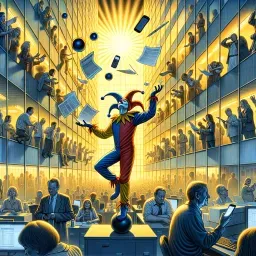”Luck is what happens when preparation meets opportunity“

0
0
0
0
- Meaning
- The phrase suggests that luck is not merely a matter of chance, but is the result of being prepared for opportunities when they arise. This means that we should strive to develop our skills, acquire knowledge, and remain vigilant for opportunities around us. When an opportunity appears, those who are prepared are able to recognize it and seize it. Therefore, continuous preparation maximizes our chances of capitalizing on these 'sudden' opportunities that arise, creating the illusion of luck.
- Allegory
- The crossroads represent the multitude of choices that appear in each person's life. The well-lit and signposted path symbolizes individual preparation and effort. The equipped human figure reflects the person who continually prepares, ready to seize opportunities. The starry sky and shooting star emphasize the randomness of opportunities that arise. The nighttime setting and bright colors create visual contrast, highlighting the decisive moment where preparation meets opportunity, providing a visual impact that reinforces the profound message of Seneca's phrase.
- Applicability
- The practical application of this phrase in daily life is clear: investing in one's own preparation and personal development is crucial. For example, a student who prepares diligently will have better chances of success in exams and job interviews. A professional who continuously enhances their skills will be better positioned to recognize and take advantage of new career opportunities. The phrase encourages us to be proactive and prepare for the future, even if it is uncertain.
- Impact
- This phrase has inspired leaders, motivators, and popular culture in significant ways. It is often quoted in motivational, educational, and corporate contexts to illustrate the importance of preparation. The phrase has found its way into commencement speeches, personal development programs, and leadership workshops. It has served as a reminder to many that, rather than passively waiting for luck, we should actively prepare for whatever comes our way.
- Historical Context
- The phrase can be contextualized within the thoughts and writings of the Roman philosopher Seneca, who lived from 4 BC to 65 AD. During the Roman Empire, there was significant emphasis on intellectual and moral development, which is reflected in the Stoicism promoted by Seneca. His philosophy focused on practical ethics and personal resilience in the face of adversity.
- Criticisms
- Although widely accepted, the interpretation of this phrase is not without criticism. Some critical perspectives might argue that this view ignores socioeconomic inequalities and structural injustices that make preparation and opportunity not equally available to everyone. Additionally, the exclusive emphasis on preparation may disregard fortuitous events or the influence of other factors beyond human control.
- Variations
- While Seneca's phrase has a fairly universal interpretation, different cultures may have variations that reflect similar values. For example, various Asian cultures emphasize the role of continuous effort (the Japanese concept of "kaizen," or continuous improvement) and readiness for opportunities. However, it is important to note that such variations remain centered on the fundamental idea that preparation creates circumstances for success.
-

I've seen things you people wouldn't believe, attack ships on fire off the shoulder of Orion, I watched c-beams glitter in the dark near the Tannhäuser Gate. All those moments will be lost in time, like tears in rain. Time to die.
-

I am the way, the truth, and the life; no one comes to the Father except through me.
-

Do or do not. There is no try.
-

It is better to be feared than loved, if you cannot be both.
-

Public office is the last refuge of the incompetent.
-

Life is the sum of all your choices.
-

In my experience, there is no such thing as luck.
-

Genius is one percent inspiration, ninety-nine percent perspiration.
-

Living is not necessary, navigating is.
-

Judge not, that ye be not judged.
No Comments